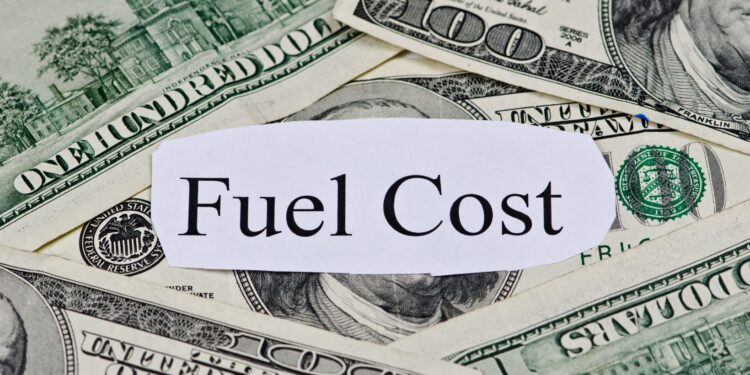Running a fleet of vehicles comes with the unavoidable cost of fuel.
Understanding how to calculate fuel costs is critical for fleet managers who want to effectively manage operational costs.
Vehicle efficiency, distance traveled, and driving behavior are the primary factors that influence a fleet’s fuel costs. These factors play an important role in determining overall fuel costs.
In this article, Fuel Logic shares how to break down the process of calculating fuel costs for fleet operations simply and practically.
Calculating Fuel Consumption
The first step in calculating fleet fuel costs is to figure out how much fuel each vehicle uses.
This can be accomplished by keeping track of the number of gallons or liters of fuel used over a given time.
Fleet managers can detect trends and anomalies that indicate inefficiencies by monitoring fuel consumption on a regular basis.
Determining Fuel Efficiency
Fuel efficiency is an important metric that has a direct impact on a fleet’s fuel costs.
Managers can determine which vehicles are the most fuel-efficient and identify areas for improvement by calculating their miles per gallon (MPG) or kilometers per liter (KPL).
Vehicles with lower fuel efficiency may require maintenance or driver training to achieve peak performance.
Tracking Distance Traveled
Each vehicle’s distance traveled must be accurately tracked in order to calculate fuel costs.
Mileage logs, GPS tracking systems, and fleet management software are all options for accomplishing this.
Managers who know the exact mileage can more accurately calculate fuel expenses and identify opportunities to streamline routes and reduce fuel consumption.
Considering Fuel Price Fluctuations
Fuel prices fluctuate due to a variety of factors, including global oil prices, supply and demand, and geopolitical events.

Fleet managers must stay up to date on current fuel prices in order to effectively budget and anticipate potential cost increases.
Keeping an eye on fuel price trends can help reduce the impact of unexpected increases in fuel costs.
Calculating Total Fuel Cost
Once all the necessary data has been collected, including fuel consumption, efficiency, distance traveled, and fuel prices, fleet managers can calculate the total fuel cost of operating their fleet.
This can be accomplished by multiplying total fuel consumption by the price per unit (gallon or liter).
The resulting figure gives a clear picture of how much fuel the fleet spends over a specific period.
Optimizing Fuel Efficiency
Fleet managers can use fuel consumption optimization strategies to reduce costs and increase overall efficiency.
This can include encouraging drivers to use eco-friendly driving practices, maintaining vehicles on a regular basis, investing in fuel-efficient technology, and optimizing route planning.
Fleets can operate more cost-effectively if they continuously monitor and adjust fuel consumption.
Using a Fuel Cost Calculator
If you want a quicker solution, fuel cost calculators can do the math for you.

Fuel Logic, offering the best diesel fuel delivery and fleet management in the USA, has developed a fuel savings calculator that allows you to enter your vehicle information and fueling frequency to estimate your fleet’s fuel costs instantly.
Using this tool can save you time and give you detailed information about your fleet’s trip expenses.
Conclusion
Calculating the cost of fuel for a fleet is an essential component of fleet management.
Whether you calculate it manually or use online tools, knowing how much you’ll spend on gas can help you make informed decisions on managing a fleet of vehicles.
Fleet managers can effectively control operational costs and improve overall profitability by understanding the factors that influence fuel expenses and implementing fuel-efficiency optimization strategies.
Remember to factor in other expenses, stay up to date on gas prices, and look into ways to save money on fuel.
Fleets that take a proactive approach to fuel cost management can confidently and successfully navigate the complexities of the transportation industry.














































































































